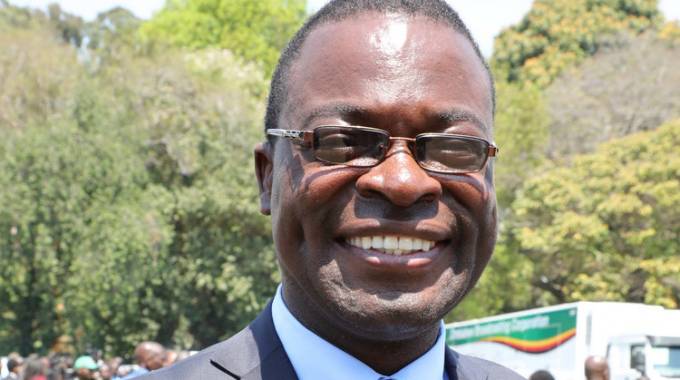Parly committees urged to lead corruption fight

Oliver Kazunga, Senior Business Reporter
PUBLIC funds should not be disbursed to line ministries without the executive implementing recommendations by the Auditor General and Parliament so as to curb corruption and misappropriation of resources, the Parliamentary Portfolio Committee on Budget, Finance and Economic Development, has said.
Committee chairperson, Mr Felix Mhona, who is also the legislator for Chikomba Central constituency, told delegates during a training workshop in Bulawayo that the new dispensation has undertaken to clean Government operations of any trace of dishonesty and instil transparency. The workshop was meant to equip legislators in the committee and the Public Accounts Committee with skills to analyse budget and statutory reports.
“It is high time that this new dispensation ensures that no public funds are disbursed to any line ministry without the executive implementing the recommendations raised by the Auditor General (AG) as well as Parliament, especially, those from post-audit committee, the Public Accounts Committee,” he said.
Mr Mhona said it was also the responsibility of the two committees to play a leading role in curbing corruption by effectively scrutinising all public expenditure and ensuring that those who abused public resources were brought to book.
“It is imperative that these committees work together to address the menace of recurring in inconsistencies between appropriation account and the respective sub accounts, including our very own Parliament getting qualified opinions,” he said.
“It is high time that our recommendations as Parliamentary committees are taken seriously and fed into the national budget.”
Previously, the committee chair said the AG has noted inadequate coordination between the Ministry of Finance and various ministries where direct payments were made and no documentation for same was sufficient.
“In some cases, reconciliation of payments made and outstanding balances were not done to ensure that the debts were reduced after payments have been made,” he said.
Mr Mhona also bemoaned the continued breach of legislative provisions by some ministries as they were not submitting statutory reports to Parliament and their accounts for auditing by the AG. Under the Public Finance Management Act (PFMA), Sections 32 to 35 of the Act compel ministries to submit monthly and quarterly financial and accompanying reports to the Accountant General, the AG and their respective portfolio committees. Given the reluctance by some ministries to adhere to the dictates of the law, Mr Mhona said it was imperative for the country to invoke Section 86 of the PFMA, which provides for penalties that include dismissal for wilful or negligently failing to comply with part IV and V of the Act.
He noted that Parliament was the embodiment of citizens’ aspirations and interests and thus the public looks upon their representatives to ensure good governance prevails and public resources are put into good use for the benefit of the nation.
“In order to ensure compliance, Parliament developed quarterly reporting guidelines to assist line ministries with content and structure of these reports.
“This workshop, therefore, will among other issues build the capacity of members to be able to interrogate these reports.
“Effective oversight is enhanced when we have enough information on the financial performance and position of the relevant line ministry,” said Mr Mhona.
“The IMF team that was recently in the country made observations around transparency and accountability, which are pre-requisites for the nation to attract the much-needed foreign direct investment.
“Zimbabwe has a negative current account balance, which makes it inevitable for the nation to clamour for transparency and accountability in the public finance management,” said Mr Mhona.
The training workshop, which ended on Saturday, was convened by Parliament in conjunction with the Southern African Parliamentary Support Trust. — @okazunga









Comments